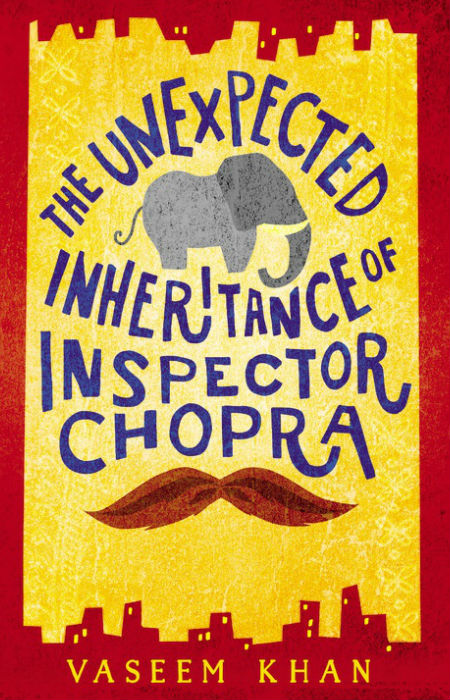
Retirement is supposed to be a golden age.
A chance to read your newspaper, watch some cricket (if you’re so inclined), ponder life, and engage in long fattening lunches and idle conversation.
And of course, tend to your newly-delivered baby elephant Ganesha left to you by your quirky uncle Bansi.
Wait, what?
Inspector Chopra, recent survivor of a heart attack, the precursor of a life-ending condition that could kill him if he doesn’t take things down a notch or 700 as a Mumbai police inspector, has just such a reaction when his uneventful passage into early retirement, one he is not entirely certain he wants to take (unlike his wife Poppy who enthusiastically champions the idea), is interrupted by the oddest of inheritances.
Stymied initially by the small emotionally-upset elephant’s arrival at the apartment complex in which he and his wife live, the childless man turns his thoughts to tending to his new young charge at the same time as a young man’s death is branded as a suicide when all the evidence suggests the contrary.
Unable to break away from a professional life devoted to righting wrongs and bringing justice to people in a country where it is thin on the ground and corruption and disadvantage are rife, Chopra, an honest man in system which is often anything but, sets out to find out what really happened to Santosh Achrekar.
It’s not quite the retirement Poppy, who has purpose-in-life issues of her own, envisaged for him and it takes him through every strata of Mumbai’s complex, teeming, colourful world in pursuit of the truth.
Not quite Lord’s on a live telecast.
And that is entirely the point in the delightful book The Unexpected Inheritance of Inspector Chopra by Vaseem Khan, the first volume in a series A Baby Ganesh Agency investigation, which provides a whimsically entertaining and insightful look at the challenges of stepping away from the work-a-day world, with themes that will ring true for anyone, regardless of their culture.
The universality of its themes sit quite comfortably within a thoroughly and lovingly-described Indian setting where the many joys and frustrations inherant in one of the world’s most populous countries is explored with good humour, vigour and a starkly realistic appreciation for the highs and lows of life.
Khan invests the book with an entertainingly quirky sensibility – the arrival of a baby elephant can’t help but engender that especially when he shows a preternatural ability to sense when Chopra is in trouble and come to his aid; a sub-continental Lassie or Flipper if you will – that remains strong throughout even as he takes a spotlight to the underbelly of Indian society which struggles with vast inequalities and crime & corruption even as it rides the wave of India’s economic renaissance.
And that is the book’s greatest strength.
It is able to tell an engaging story about one man’s search for justice, and a renewed sense of purpose and meaning – how do you re-define yourself when the one thing, besides your devoted wife, that defined you is taken from you by an inevitable but unwelcome set of circumstances? – take a blowtorch to issues that plague many societies and leach away the ability of many people to have any kind of meaningful life, while following in the tradition of sleuthing characters the world over who find themselves in their prime just when they’re told it’s time to put their feet up and take it easy.
For anyone with even a passing love of India and it’s complex, colourful, challenging society, the book is a joy, its willingness to look at the good and the bad far more intelligently realised than you might expect in a light, quirky detective novel.
But’s that the attraction of the book all around really.
It’s as lightly enjoyable on one level as any mystery you might buy at the airport to pass a long and boring flight; but it is also richly-detail cleverly-insightful, its lovingly realised, fully-fleshed out protagonist and the world he inhabits brought to life in endearing fashion on page after page, its themes universal but its milieu most distinctively and enjoyably Indian.
Inspector Chopra’s retirement may not quite what the doctor or his wife ordered, but thank goodness for that because what we are left with is a delightfully clever book that entertains every bit as much as it makes you think, a reminder that mystery novels can be as much about social commentary as they are about a wish-fulfilment realisation of justice.